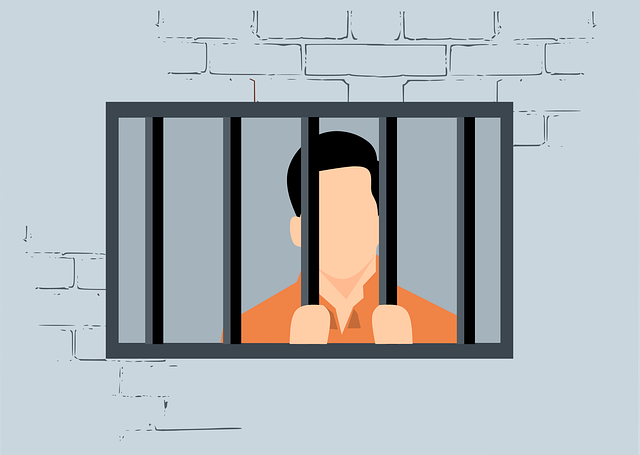Driving under the influence (DUI) laws, while aimed at public safety, can burden individuals' mental health with anxiety, depression, and stress due to potential consequences like imprisonment, license suspension, and stigma. Alternative sentencing methods, including counseling, community service, and rehabilitation, offer a more comprehensive solution by addressing education, accountability, and support, mitigating psychological impacts for those with mental health problems. Recognizing the connection between mental health and impaired driving is crucial for developing effective strategies. Community-based solutions, focusing on holistic support and personalized rehabilitative measures, are emerging as promising alternatives to traditional sentencing, aiming to reduce recidivism rates and foster safer communities.
In the realm of mental health and impaired driving, navigating DUI laws can be complex. This article delves into alternative sentencing options that go beyond traditional approaches. We explore how innovative programs are transforming the way we address drunk or drugged driving, focusing on mental health-specific strategies. From community-based solutions to progressive punishment models, these initiatives aim to support offenders while redefining societal responses to impaired driving. Understanding these alternatives is crucial in fostering a more compassionate and effective justice system.
- Understanding DUI Laws and Their Impact on Mental Health
- Exploring Traditional Sentencing for Impaired Driving Offenses
- The Rise of Alternative Sentencing Programs
- Mental Health-Focused Approaches in DUI Cases
- Community-Based Solutions: Redefining Punishment and Support
Understanding DUI Laws and Their Impact on Mental Health

Driving under the influence (DUI) laws are designed to protect public safety, but their strict nature can significantly impact individuals’ mental health. When faced with potential DUI charges, many people experience anxiety, depression, and stress, which can be exacerbated by the legal process and potential consequences. The fear of imprisonment, loss of license, and the stigma associated with a DUI conviction can take a toll on one’s overall well-being, especially for those already dealing with mental health issues.
Alternative sentencing options, such as counseling, community service, or participation in rehabilitation programs, offer a more holistic approach to addressing impaired driving. By focusing on education, accountability, and support, these alternatives aim to improve behavior without the severe mental health repercussions that can result from traditional punitive measures. Mental health and impaired driving are interconnected issues, and understanding this relationship is crucial when considering effective solutions for both.
Exploring Traditional Sentencing for Impaired Driving Offenses

In many jurisdictions, traditional sentencing for impaired driving offenses often involves a combination of fines, license suspension, and community service. However, this approach may not adequately address the underlying factors contributing to such incidents, especially when mental health plays a significant role. Impaired driving is not merely a matter of poor judgment but can be indicative of broader issues related to mental well-being.
When mental health and impaired driving intersect, alternative sentencing strategies become increasingly important. These options aim to provide more tailored interventions, focusing on rehabilitation and support rather than solely punitive measures. By exploring alternatives like counseling, substance abuse treatment, or specialized driving programs, the criminal justice system can offer a more compassionate approach that considers the complex nature of these offenses.
The Rise of Alternative Sentencing Programs

In recent years, there’s been a growing recognition of the need for innovative approaches to address the issue of DUI (drunk or impaired driving). This shift is partly driven by a desire to better support individuals with Mental Health and Impaired Driving issues, who often face traditional sentencing that may not be effective in promoting long-term recovery. As a result, Alternative Sentencing Programs have emerged as a promising alternative to conventional jail time. These programs aim to offer more personalized, rehabilitative measures tailored to the unique needs of each offender.
The rise of these alternative options reflects a broader societal move towards more compassionate and holistic approaches to criminal justice. By focusing on treatment and support rather than solely punishment, these programs seek to reduce recidivism rates and empower individuals to overcome their struggles with impaired driving. This approach is particularly significant given the high-risk nature of Mental Health and Impaired Driving cases, emphasizing a need for care that goes beyond traditional law enforcement measures.
Mental Health-Focused Approaches in DUI Cases

Mental health-focused approaches are gaining recognition as a promising alternative sentencing option for DUI cases. These strategies acknowledge that mental health issues often underlie impaired driving, addressing the root cause rather than solely punishing the behavior. By incorporating mental health assessments and treatment into the sentencing process, courts can offer more holistic support to offenders struggling with conditions like depression, anxiety, or substance abuse.
This approach not only promotes individual healing but also contributes to road safety by reducing recidivism rates. Treatment programs focused on managing underlying mental health conditions can equip individuals with coping mechanisms to avoid future impaired driving incidents. Furthermore, mental health-centric alternatives to incarceration may include community-based support groups, therapy sessions, and supervised recovery programs, providing a more compassionate and effective response to Mental Health and Impaired Driving.
Community-Based Solutions: Redefining Punishment and Support

Community-based solutions offer a fresh perspective on addressing DUI (drunk or impaired driving) cases, focusing on punishment redefinition and support systems rather than solely on legal consequences. This approach recognizes that mental health issues often play a significant role in impaired driving. By redirecting resources towards community interventions, we can create a network of support for individuals struggling with addiction and underlying mental health conditions.
These solutions involve alternatives like intensive case management, behavioral therapy, recovery coaching, and support groups. Such programs aim to help offenders understand the impact of their actions while addressing the root causes, such as depression, anxiety, or substance abuse disorders. This holistic approach not only promotes individual healing but also contributes to safer communities by reducing repeat offenses related to mental health and impaired driving.
In light of the above discussions, it’s clear that the traditional sentencing approaches for impaired driving offenses often fail to address the underlying mental health issues. By embracing alternative sentencing programs focused on mental health, communities can offer more compassionate and effective solutions for DUI offenders. These innovative strategies, such as community-based support and restorative justice, not only promote healing but also reduce recidivism rates while prioritizing public safety. Therefore, moving towards these progressive methods is crucial in balancing punishment with support, ensuring better outcomes for both the individuals affected by DUI and society at large.






